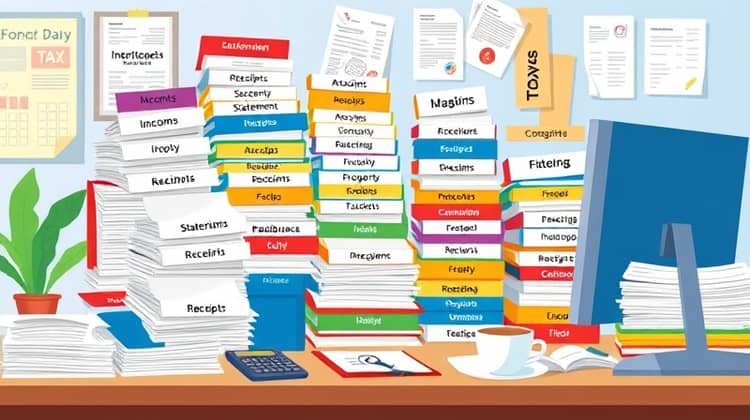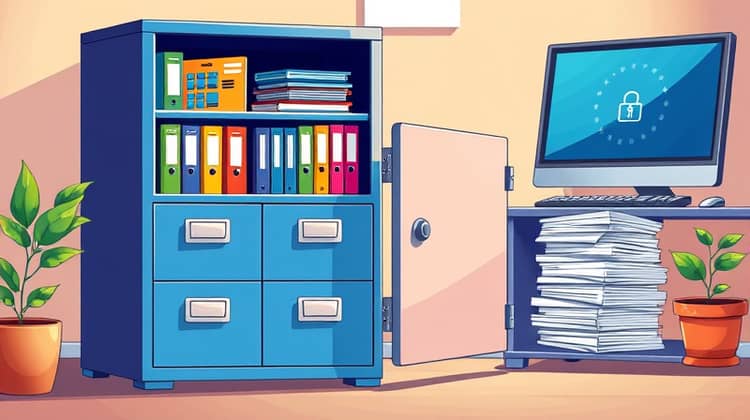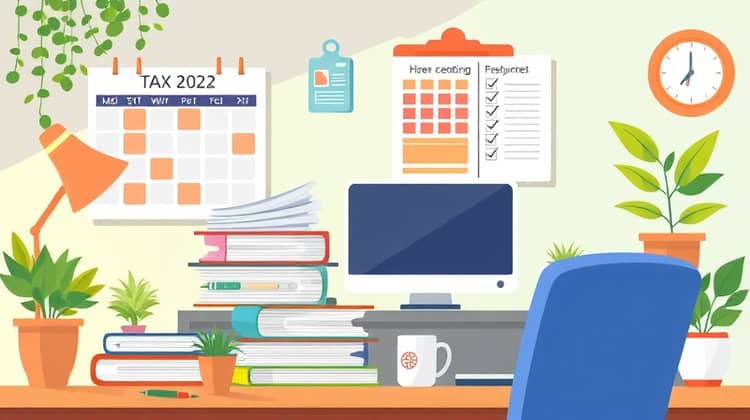Organizing tax documents can often feel overwhelming. With multiple sources of income, numerous deductions, and various forms to fill out, it can be challenging to keep everything in order. However, proper organization is crucial for a stress-free tax season and maximizing your benefits. By implementing a solid system for organizing your tax documents, you will save time and reduce anxiety when filing your taxes annually.
In this article, we will explore the importance of organizing tax documents and provide practical tips on how to create an efficient filing system, categorize your documents, and leverage technology to make the process easier. We'll also discuss the security of your records and the importance of regular updates. By the end of this article, you should have a comprehensive understanding of how to keep your tax documents in order and the measures you can take to ensure they are readily available when needed.
Whether you are a freelancer, a small business owner, or an employee, keeping your tax documents organized is vital. Not only does it help you file your taxes with ease, but it also provides clarity and peace of mind should you face an audit. Let's dive into the steps you can take to effectively organize your tax documents.
Importance of Organizing Tax Documents

Keeping your tax documents organized is essential for several reasons. First, it reduces the stress associated with tax filing. When tax time rolls around, having your documents sorted and accessible makes the process much smoother.
Second, proper organization of tax documents ensures that you don't overlook any deductions or credits that you might be entitled to. Missing out on potential savings can significantly impact your tax bill.
Lastly, an organized system can help you stay compliant with tax laws. In the event of an audit, having a well-structured collection of your documents can significantly reduce complications and provide peace of mind.
Create a Filing System

Creating a filing system is the first step towards organizing your tax documents effectively. You can choose to have a physical filing system with folders or a digital system using software or cloud storage that suits your needs. It’s crucial to decide early which method works best for you and stick to it, ensuring continuity in your record-keeping.
Regardless of whether you choose physical or digital methods, set aside a specific time to organize your documents regularly. This proactive action will save you time during tax season and help you stay ahead of any potential issues.
- Use labeled folders for physical copies
- Create digital folders for electronic documents
- Color-code folders to signify different categories
- Store documents in a safe, dedicated space for easy access
- Backup all digital documents regularly
Once you have set up your filing system, begin to categorize your documents based on your income sources, expenses, and other relevant information. This method will help streamline the process and make retrieving documents much simpler.
Digital vs. Physical Records

In today's digital age, many people opt for digital records instead of physical documents. Digital records are advantageous because they take up less physical space and can be easily accessed from multiple devices, ensuring that you can retrieve them whenever necessary.
However, you must ensure that your digital files are secure and properly backed up. On the other hand, maintaining physical copies can provide a sense of security for some, as you can physically see and access important documents.
Categorize Your Documents

Categorizing your tax documents is vital for efficient organization. This could include separating items such as income statements, receipts for deductions, and documents related to property ownership or investments.
- W-2s and 1099s
- Receipts for deductible expenses
- Bank and investment statements
- Property tax documents
- Miscellaneous tax forms such as 1098s
Categorization not only helps in organization but also in quickly locating specific documents when they are needed, paving the way for a more efficient tax preparation process.
Use Technology to Your Advantage

Using technology can greatly enhance your document organization efforts. Tax software can help track income and expenses, automatically categorize documents, and even guide you through tax filing.
Cloud storage solutions can also facilitate easy sharing and access, enabling you to collaborate with tax professionals seamlessly.
Keep Up with Changes

Tax laws and regulations can frequently change, making it essential to stay informed. Regularly educate yourself about new tax codes that may affect your situation, as these changes could directly impact your filing procedures. Staying ahead of tax changes will minimize surprises when you file.
Additionally, maintaining a flexible organization system that can adapt to these changes simplifies the filing process throughout the years.
Secure Your Documents

Having an organized system is important, but equally vital is ensuring the security of your sensitive tax documents. Physical documents should be stored in a locked and secure location, such as a safe or a locked filing cabinet, to protect against theft or damage.
For digital records, using password protection and enabling two-factor authentication can provide an extra layer of security against unauthorized access.
Review and Update Regularly

Regularly reviewing and updating your tax document organization system is necessary for keeping everything current. This includes discarding outdated documents or adding new ones, ensuring that you will always have the necessary information handy for tax time.
- Set a schedule for regular reviews (e.g., quarterly or annually)
- Make a checklist of documents to keep and discard
- Stay informed about changes in tax regulations that may affect your filings
- Ensure all documents are categorized correctly before tax season begins
This practice not only ensures that you stay organized but also allows you to lower your stress levels leading up to tax season with a well-maintained filing system.
Seek Professional Help if Needed

It's important to recognize when you need assistance in organizing your tax documents or filing your taxes. Seeking professional help can save you time and stress, especially if your financial situation is complex or if you're unsure of how to proceed.
A certified tax professional can provide expert guidance and help you maximize deductions while ensuring compliance with tax regulations.
Conclusion

In conclusion, organizing tax documents is a crucial element of effective tax preparation. It not only reduces stress but also ensures compliance and maximizes potential savings. By implementing a comprehensive filing system, categorizing documents, and staying up to date with changes, you set yourself up for a smoother tax season every year.
Moreover, leveraging technology to streamline the process can help you manage your records more effectively. Never neglect the importance of securing your documents since they contain sensitive information that requires protection.
Remember to regularly review and update your organization method as tax laws evolve and your personal financial situation changes. Seeking professional help when needed can also alleviate challenges during more complicated tax scenarios.
Overall, taking control of your tax documents leads to a more organized and stress-free experience during tax season, allowing you to focus on what truly matters.














